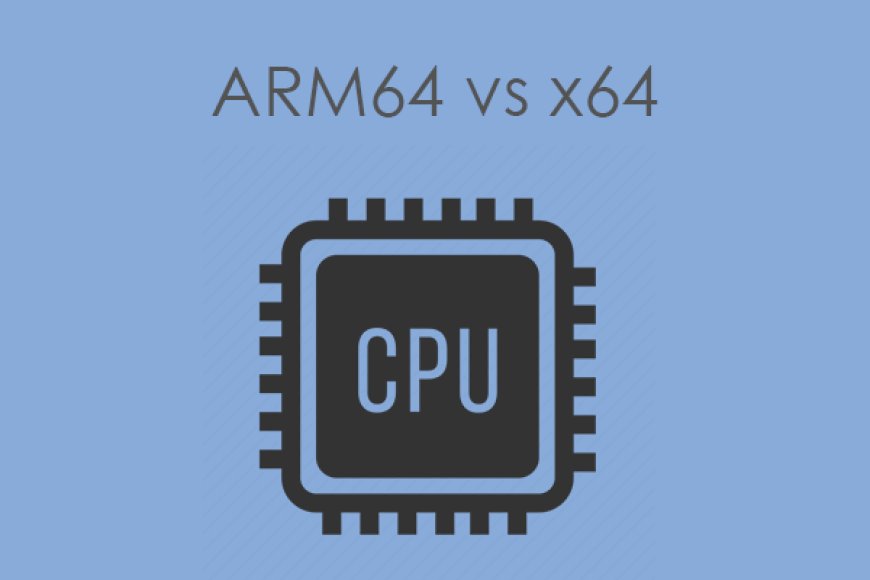X64 vs ARM: Which Laptop Processor is Right for You?
Confused about whether to choose an X64 or ARM laptop? This guide breaks down the key differences in performance, battery life, software compatibility, and price to help you make an informed decision.

Introduction
Processors are the brains of your laptop, and choosing the right one depends on what you'll be using it for. Two main architectures dominate the market: X64 (also known as x86-64) and ARM. Traditionally, X64 has been the standard for laptops, but ARM processors are gaining traction due to their efficiency and performance improvements.
Performance
While X64 processors still hold an edge in raw power for demanding tasks like video editing and high-end gaming, ARM processors have come a long way. Apple's M1 and M2 chips, for example, have demonstrated impressive performance gains, even rivaling some high-end X64 chips in specific tasks. For everyday tasks like browsing, productivity work, and even some creative applications, ARM processors are now more than capable.
Battery Life
One of the biggest advantages of ARM processors is their superior battery life. Their efficient design allows laptops to run for significantly longer on a single charge compared to X64 laptops. This is a major benefit for users who prioritize portability and working on the go. While X64 processors have improved their power efficiency, ARM processors still hold a clear lead in this area.
Software Compatibility
Software compatibility is a crucial factor to consider. X64 has a wider range of compatible software due to its longer history as the dominant architecture. However, ARM compatibility is rapidly improving. Apple's M-series chips use emulation to run most X64 applications seamlessly, and Microsoft is developing its own ARM processors for Windows laptops with improved compatibility. While there might still be some niche software that doesn't run on ARM yet, the gap is closing quickly.
Price
ARM laptops tend to be more affordable than their X64 counterparts, especially for mid-range models. This is due to lower production costs associated with ARM processors. However, high-end ARM laptops with top-of-the-line specifications can still carry a premium price tag.
Conclusion
Choosing between X64 and ARM comes down to your specific needs. Here's a quick guide:
- ARM: Ideal for users who prioritize portability, battery life, and everyday productivity tasks.
- X64: Best for users who demand maximum performance for professional creative work, high-end gaming, or software development where specific software compatibility is crucial.
Ultimately, the best choice depends on your budget and how you plan to use your laptop. Consider the types of applications you'll be running and how important battery life is to you. If you're unsure, researching specific laptop models and their benchmarks can help you make an informed decision.
Additional Tips
- Look for reviews and benchmarks of specific laptops you're interested in to get a clearer picture of their performance.
- Consider future-proofing your purchase. ARM processors are likely to become more powerful and widely adopted in the coming years.

 Ellofacts Author
Ellofacts Author 





